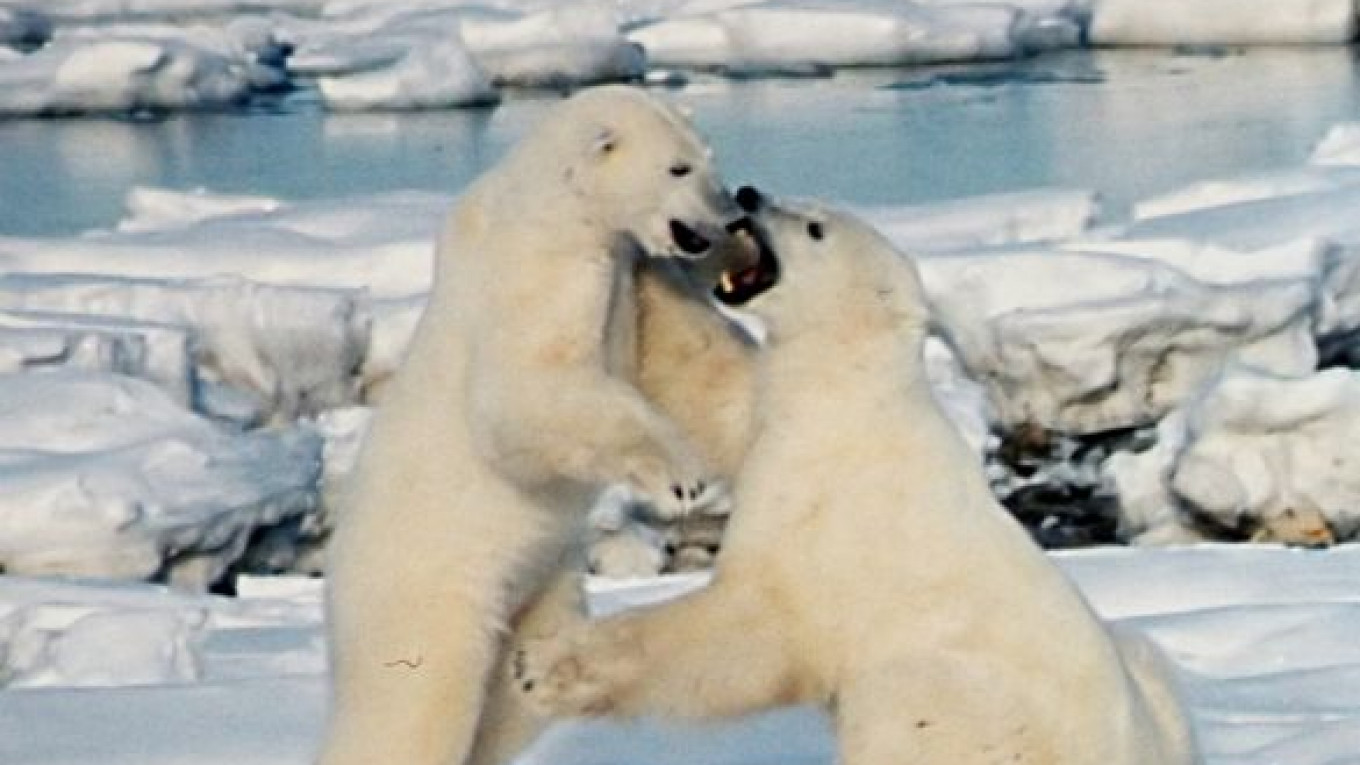BP, which lost its first deal to drill for oil in Russia's Arctic to ExxonMobil, tried to negotiate a new deal with Russian state oil company Rosneft and was again beaten to the punch by its U.S. rival.
Under a deal last month, ExxonMobil won access to the Arctic Laptev Sea fields, where Rosneft’s prospective reserves amount to 36 billion barrels of oil equivalent. But three industry sources said BP had also been in talks with Rosneft to explore several blocks there.
Setbacks have become the norm for BP's activities in Russia, where it formed a joint venture, TNK-BP, in 2003 by pooling its assets with those of four Soviet-born billionaires. It is currently selling out of that troubled venture to Rosneft.
TNK-BP became a battle of wills between the British firm and the tycoons, who blocked BP's first attempt to form an Arctic exploration deal with Rosneft, a deal that BP executives had compared to the opening of a new North Sea.
Having negotiated that venture, which the tycoons said was in breach of the TNK-BP agreement, BP had to step aside and watch ExxonMobil take the spoils in 2011.
Now Rosneft prefers ExxonMobil for the Laptev fields, even though BP will become a significant shareholder of Rosneft in April and name two directors to its board as part of the takeover of TNK-BP.
The government even offered BP CEO Bob Dudley a seat on the board at state-controlled Rosneft, headed by Igor Sechin, an influential ally of President Vladimir Putin.
BP and Rosneft were unable to respond immediately to a request for comment.
BP was left a bystander as a rush for Arctic drilling deals got under way. Italy's Eni and Norway's Statoil have also struck partnerships with Rosneft, trading technology and capital for access to tens of billions of barrels of prospective offshore Arctic reserves.
The $55 billion cash-and-share deal to sell TNK-BP to Rosneft, freeing BP from its fractious partnership and making it a 20 percent shareholder in Rosneft, appeared to promise a second shot at an exploration deal with Rosneft.
Sechin said Rosneft would remain interested in upstream projects with the British major after the takeover, "which we will develop with BP as a partner, not as a shareholder."
Now, out of nearly 30 Arctic license areas held by Rosneft, all but five have been parceled out in upstream joint ventures with other companies, leaving slim pickings for BP.
The loss of the Laptev blocks to ExxonMobil, coupled with concerns about BP's role in the integration of TNK-BP, prompted Dudley to fly to Moscow in the middle of February, the sources said.
"Dudley came to Moscow to try to salvage the situation," a source said.
Another source said Dudley met Sechin, the architect of Rosneft's foreign upstream partnerships.
The loss of the Laptev Sea acreage is an indication of the difficult path still ahead for Dudley, who as CEO of TNK-BP was driven out of Russia in a struggle for control of that venture.
Influential Exxon
Sechin himself, at pains to indicate that the conflict-ridden days of TNK-BP would end with the takeover, has sought to show that Rosneft can work with Dudley, who was nominated to its board by the government.
But in a sign of the differing roles for BP and ExxonMobil at Rosneft, Vedomosti reported Monday that as a state appointee, Dudley would have to vote by government directive on major issues, such as large deals and key appointments.
By contrast, ExxonMobil's top financial official, Donald Humphreys, has been nominated as an independent and as such can decide for himself how to vote, Vedomosti said. The report could not be immediately confirmed.
More broadly, it is unclear what rights, if any, BP will have in managing an expanded Rosneft, while a senior ExxonMobil executive, Zeljko Runje, was plucked from the Moscow office and made a vice president at Rosneft at Sechin's behest.
Although a few senior managers with ties to BP remain at TNK-BP after a purge of Western executives in a 2008 conflict between BP and its local partners, Sechin is unlikely to move them to Rosneft.
"He doesn't know any of them," one of the sources said.
Arctic Access
Rosneft's sudden decision to expand its Arctic drilling venture with ExxonMobil may have been intended to protect its own access to Arctic reserves.
It followed a media report citing a Natural Resources and Environment Ministry presentation that suggested state companies' exploration plans were not aggressive enough.
The ministry, responsible for licensing access to mineral reserves, was lobbying to expand access to Russia's offshore fields to private companies over protests from Rosneft and state gas company Gazprom, which had held exclusive rights.
Sources close to BP say it will have an indirect share of Rosneft's upstream ventures with rivals through its 20 percent holding in Rosneft once the buyout of BP and its partners is finalized at the beginning of April.
A Message from The Moscow Times:
Dear readers,
We are facing unprecedented challenges. Russia's Prosecutor General's Office has designated The Moscow Times as an "undesirable" organization, criminalizing our work and putting our staff at risk of prosecution. This follows our earlier unjust labeling as a "foreign agent."
These actions are direct attempts to silence independent journalism in Russia. The authorities claim our work "discredits the decisions of the Russian leadership." We see things differently: we strive to provide accurate, unbiased reporting on Russia.
We, the journalists of The Moscow Times, refuse to be silenced. But to continue our work, we need your help.
Your support, no matter how small, makes a world of difference. If you can, please support us monthly starting from just $2. It's quick to set up, and every contribution makes a significant impact.
By supporting The Moscow Times, you're defending open, independent journalism in the face of repression. Thank you for standing with us.
Remind me later.






